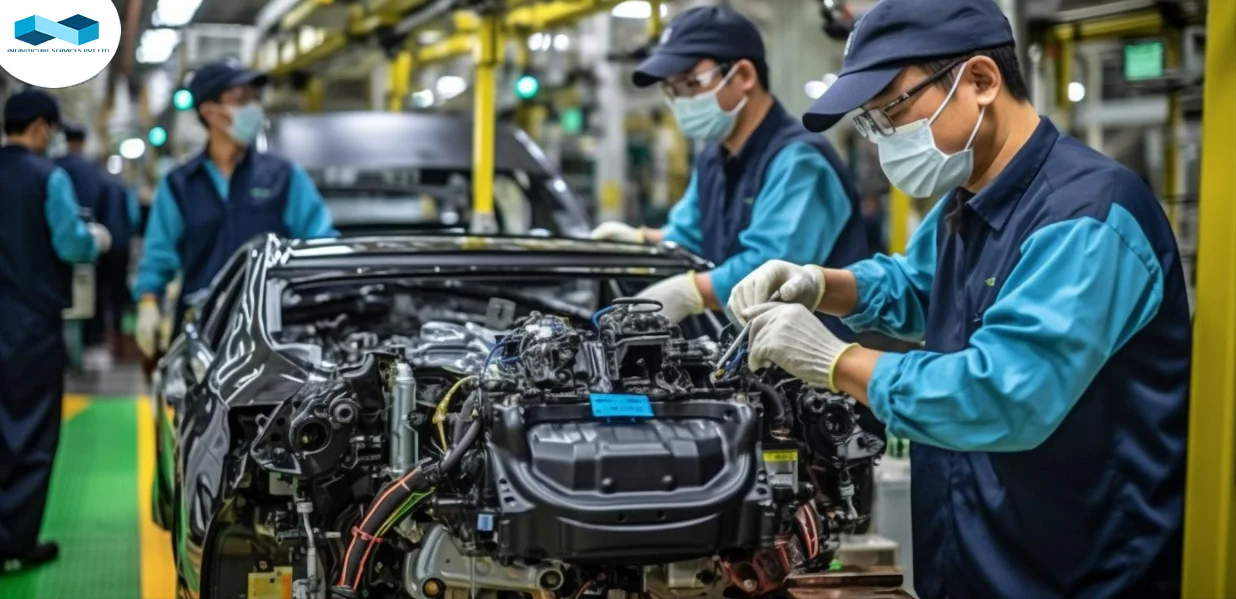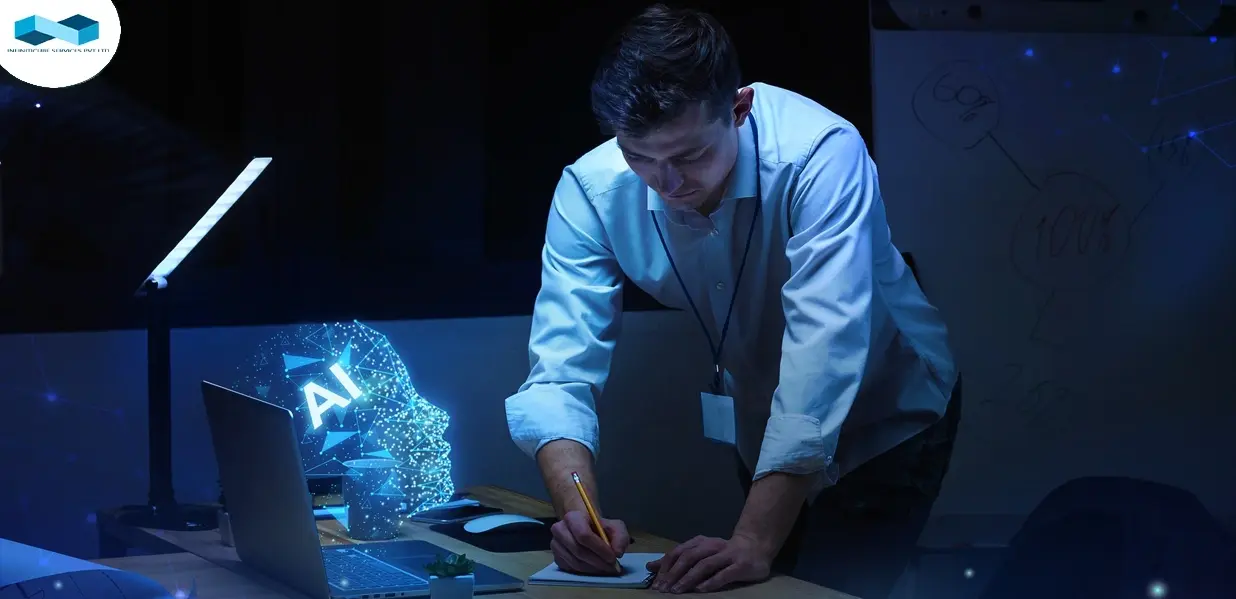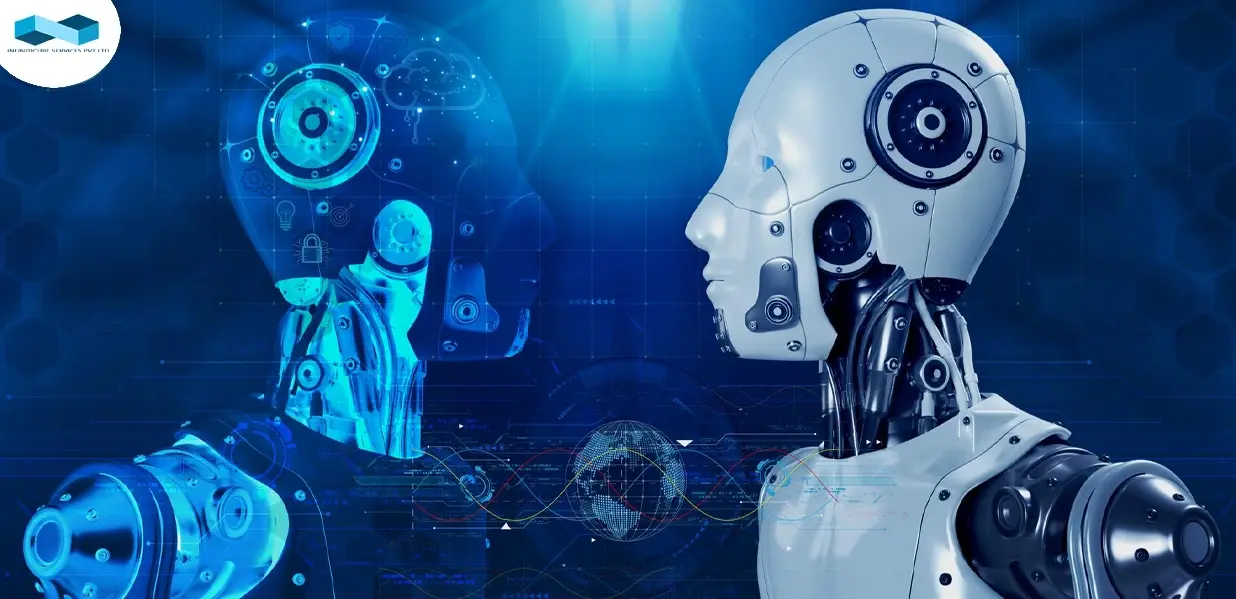12 Changes Automotive Experts Must know About Certifications
Introduction
Certifications in the automotive industry are essential for professionals to excel in a rapidly evolving field. They serve as standardized benchmarks, showcasing expertise and adaptability. Employers value certifications as proof of commitment to industry advancements and technological proficiency.
Certifications act as shields against obsolescence, guiding professionals through technological surges like electric vehicles and autonomous driving. They are turbo-boosters for careers, aligning professionals with global standards and signaling excellence to employers.
The future of automotive certifications includes AI integration and sustainable practices to meet industry demands. Certifications are indispensable tools for success, ensuring professionals stay competitive and innovative in the fast-paced automotive industry.
I. The Shifting Landscape of Automotive Certifications
Automotive certifications evolve with industry changes, reflecting trends and advancements. They are dynamic indicators, not static milestones.
Historical perspective on certifications
- Historical exploration shows evolution of automotive certifications from basic to specialized validations
- Certifications reflect industry's transformation from mechanical to digital complexity
- Shift from generic to tailored endorsements mirrors modern vehicle demands
Emerging trends in the automotive certification landscape
- Automotive certifications adapt to the digital age, enabling remote participation and real-time industry connection.
- Future certifications focus on electric vehicles, driver assistance, green tech, and AI integration for tomorrow's skills.
- Globalization revolutionizes certification standards, creating a universal language of competence.
- Certifications emphasize eco-friendly practices, shaping professionals for a greener automotive future.
- Automotive certifications evolve from rudimentary validations to digital, global, and eco-friendly expertise.
II. Industry Demand for Updated Expertise
The automotive industry requires updated skills due to evolving technology and the rise of electric vehicles.
Growing complexity in automotive technology
- Automotive landscape evolving with complex technologies like ADAS and engine management systems
- Professionals require skills beyond mechanical knowledge to navigate this technological maze
- Modern vehicles operate as digital groups with algorithms, sensors, and software
- Understanding and manipulating automotive software is crucial for seamless integration
- Data dexterity essential for unlocking automotive technology's full potential
- Professionals must interpret data, optimize performance, and address cybersecurity in connected vehicles
Impact of electric vehicles on skill requirements
- Electric vehicles shift the automotive landscape, requiring professionals to update skills in battery tech and drivetrains.
- Future automotive experts must master charging infrastructure, battery management, and drivetrain troubleshooting.
- Professionals need to be hybrid, skilled in both traditional and electric technologies, to meet industry demands.
- Automotive experts must adapt and excel in the evolving landscape of electric vehicles and technology convergence.
A digital transformation is revolutionizing professional certifications, making them more accessible and introducing new elements.
- Online certification platforms revolutionize access to exams, democratizing knowledge and enabling remote participation
- Geographical barriers are eliminated, allowing global engagement in certification processes
- Flexible learning is promoted, with 24/7 access to preparatory materials and assessments fitting busy schedules
Incorporation of digital badges and credentials
- Digital badges and credentials redefine accomplishment language with dynamic, verifiable representations of skills.
- Badges offer interactive proof of proficiency, detailing skills, assessments, and expertise domains.
- Blockchain technology enhances credibility by verifying achievements in digital representations.
- Digital certification signifies a classic evolution, offering accessibility, interactivity, and a new language of accomplishment.
IV. Evolving Certification Standards
The automotive certification standards are evolving to validate professionals' expertise with internationalization and standardization.
Changes in industry standards for automotive certifications
- Automotive certifications adapt to tech advancements, raise standards for professionals
- Criteria for certifications become adaptive to match industry's pace of change
- Professionals assessed on adaptability, innovation, and understanding modern automotive systems
- Fusion of traditional and emerging skills required for automotive experts
- Certification standards shaping versatile professionals for evolving industry demands
Internationalization and standardization efforts
- Internationalization efforts match certification standards globally
- Certifications break regional boundaries, creating universal language of proficiency
- Standardization builds trust, transcending geographical nuances
- Collaborative initiatives drive pragmatic standard-setting processes
- Evolution of standards navigates automotive certifications towards excellence, innovation, and adaptability
V. Integration of Sustainable Practices
The automotive industry is undergoing a shift towards sustainability in certifications, focusing on eco-friendly solutions.
Inclusion of environmental and sustainability aspects in certifications
- Certifications now include environmental aspects, not just mechanical skills.
- Professionals are custodians of a greener automotive future.
- Certifications assess eco-friendly technologies, recycling practices, and environmental impact.
- Sustainable design and manufacturing are key components of certifications.
- Professionals must understand eco-friendly materials, energy-efficient processes, and waste reduction.
- Certifications shape professionals to be architects of sustainability.
- Life cycle analysis competence is a new dimension in certifications.
- Professionals are evaluated on the environmental impact of vehicles throughout their life cycle.
Adapting to the demand for eco-friendly automotive solutions
- Demand for eco-friendly auto solutions is a seismic shift in consumer preferences.
- Certifications adapt by including modules on EVs, hybrids, and sustainable fuels.
- Professionals drive the eco-revolution by mastering innovative energy solutions.
- Certifications lead to tangible advancements in eco-friendly automotive tech.
- Certifications sculpt eco-conscious experts with guiding principles of sustainability.
- Professionals anticipate and drive the demand for eco-friendly solutions in the automotive industry.
VI. The Role of Artificial Intelligence in Certification
Artificial Intelligence is revolutionizing automotive certifications, enhancing efficiency and precision through transformative processes.
- AI-driven learning platforms revolutionize automotive education with personalized content
- Platforms adapt to individual learning styles for effective education
- Real-time feedback loop provides precise guidance for continuous improvement
Certification exams embracing AI-assisted evaluation
- AI transforms certification exams with precise evaluation, focusing on depth of knowledge and thought process.
- Deep learning algorithms analyze automotive expertise in exams, providing insights beyond scores.
- Adaptive testing adjusts question complexity based on professionals' proficiency levels, ensuring accurate assessments.
- AI integration in certifications leads to personalized education, instant feedback, and precise assessments.
- Professionals embracing AI shape an era of expertise, essential for excellence in the automotive industry.
VII. Real-world Application and Practical Assessments
The automotive industry is shifting towards practical assessments for certifications to ensure real-world competence.
Shift towards hands-on evaluations in certification programs
- Certification programs are moving towards hands-on evaluations
- Professionals apply knowledge in real-world situations, departing from theoretical assessments
- Emphasis on practical application over traditional pen-and-paper assessments
Simulations and real-world scenarios for practical certification tests
- Simulations in certification tests evaluate decision-making, adaptability, and problem-solving skills.
- Interactive problem-solving challenges replace rote memorization in automotive certifications.
- Real-world scenarios in assessments test dynamic adaptability and problem-solving acumen.
- Practical assessments measure holistic competence beyond bookish knowledge.
- Practical assessments bridge theory and practice for automotive certification success.
VIII. Industry Collaboration in Certification Programs
Industry collaboration in automotive certifications is evolving through partnerships between companies and certification bodies. Joint initiatives aim to enhance skills and prepare professionals for future challenges.
Partnerships between automotive companies and certification bodies
- Automotive companies and certification bodies collaborate to shape professionals' expertise.
- The alliance aims to promote automotive proficiency standards beyond mere endorsements.
- Collaboration nurtures expertise, with shared goals ensuring industry excellence milestones.
- Strategic alliances redefine certification criteria to align with practical automotive sector demands.
- Certifications reflect skills required for industry operations, not just theoretical knowledge.
Joint initiatives to enhance industry-specific skills
- Tailored curriculums bridge gap between certification and industry needs
- Experiential learning enhances professionals' practical insights and skills
- Innovative training modules evolve with industry advancements, future-proofing expertise
- Collaborative partnerships shape a future of excellence in automotive certifications
IX. Continuous Learning Models
Continuous learning is essential in the automotive industry due to constant innovation and professional development demands.
Importance of ongoing professional development for automotive experts
- Ongoing professional development is vital for automotive experts to stay relevant in the industry.
- Continuous learning is necessary to keep up with evolving technologies and industry trends.
- Automotive professionals must embrace a mindset of lifelong learning to achieve excellence.
- Adapting skill sets to meet future demands is crucial for success in the automotive field.
Integration of continuous learning into certification programs
- Certifications now incorporate continuous learning, reflecting a paradigm shift in professional development.
- Modular approach in continuous learning allows tailored knowledge enhancement for professionals.
- Technology-driven platforms like VR and AI enhance continuous growth in certification programs.
- Automotive professionals navigate ever-expanding horizons through ongoing professional development.
- Certifications with continuous learning show a commitment to perpetual growth in the automotive industry.
X. Addressing Diversity and Inclusion in Certifications
The automotive industry is undergoing a cultural shift towards diversity and inclusion in certifications. Initiatives promote workforce diversity and inclusive certification practices.
- Automotive diversity initiatives aim for a workforce as varied as the vehicles they produce
- Empowering women in automotive breaks gender norms and encourages equality and innovation
- Outreach programs nurture talent in underrepresented communities, creating pathways into the industry
- Cultural competency training bridges understanding gaps and welcomes diverse perspectives in the workforce
Inclusive practices in certification design and implementation
- Inclusive practices in certification design promote diversity and unbiased assessments in the automotive industry.
- Fair assessment protocols aim to mitigate bias and celebrate varied problem-solving approaches.
- Accessible learning materials ensure equal access for individuals with diverse learning needs.
- The automotive industry is moving towards an inclusive future with diverse expertise and cultural shifts.
This section discusses the importance of transparency and accessibility in automotive certifications. It highlights the need for clear information on certification requirements and equal access for all learners. This shift emphasizes guiding aspirants and professionals through their certification journey with clarity and inclusivity.
- Clear information on certification requirements crucial for automotive expertise journey
- Transparent criteria act as blueprint for success in defining automotive proficiency
- Accessible information portals empower aspirants by providing comprehensive details
- Interactive guides offer insights, tips, and real-world examples for navigating certification landscape
- Timely updates in certification requirements reflect evolving industry standards, ensuring alignment with profession's demands
Ensuring accessibility for a diverse range of learners
- Certification journey emphasizes accessibility for diverse learners, removing barriers to automotive expertise.
- Accessible formats include multilingual resources and audio-visual materials to break language and literacy barriers.
- Flexible learning pathways cater to individual needs through part-time, online, and modular programs.
- Transparency and accessibility in certifications empower learners towards informed automotive excellence.
XII. Impact of Certification Changes on Career Advancement
Navigating career waves through certification changes boosts success, offering tangible benefits and testimonial evidence.
How staying updated on certifications can boost career prospects
- Staying updated on certifications is a strategic decision shaping professional trajectory.
- Certification changes showcase adaptability, a vital aspect of professional relevance.
- Certifications elevate skill sets, anticipating future industry needs and enhancing employability.
- Industry recognition through certifications opens doors to new opportunities for professionals.
- Certification changes create networking opportunities with like-minded professionals for future collaborations.
Testimonials and success stories of professionals benefiting from certification changes
- Testimonials and success stories guide professionals on the path to triumph.
- Real-life narratives show benefits of certification changes, inspiring others.
- Exponential career growth follows strategic investment in staying updated on certifications.
- Journey towards professional fulfillment involves continuous growth, adaptability, and industry recognition.
- Embracing certification changes leads to transformative power and unparalleled success in career advancement.
Conclusion
The conclusion emphasizes the importance of embracing continuous learning and adapting to the evolving landscape of automotive certifications. Professionals need to stay updated with industry trends, digital transformations, evolving standards, and sustainable practices.
Continuous learning is essential for success in the dynamic automotive industry, where certifications mark milestones in a journey of improvement and expertise. Embracing change and continuous learning is crucial for staying relevant, innovative, and impactful in the ever-changing automotive field.
The future of automotive mastery lies in navigating the certification evolution with a mindset of perpetual growth.
Don't miss out on crucial changes impacting your career. Take charge of your professional development. Contact us now to explore the essential certifications every automotive expert must know about!
 June 27, 2025
June 27, 2025
 Balbir Kumar Singh
Balbir Kumar Singh
 0
0
 June 13, 2025
June 13, 2025
 Balbir Kumar Singh
Balbir Kumar Singh
 0
0








